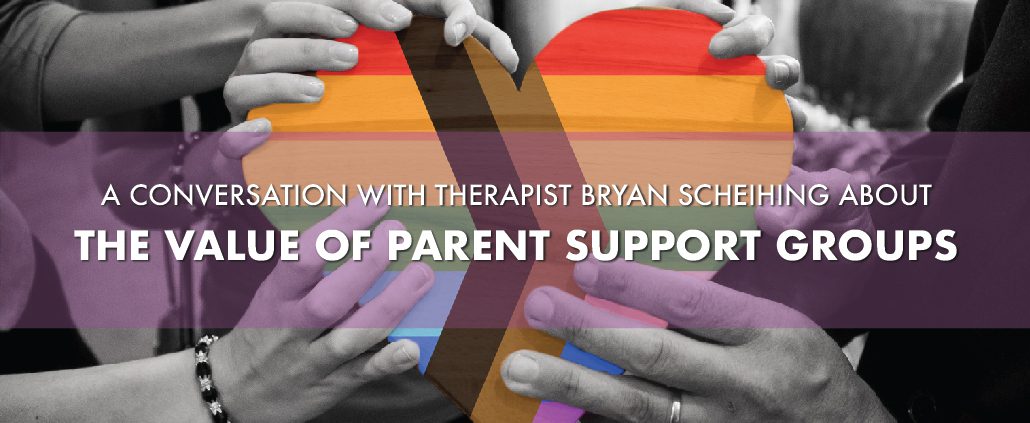
The Value of Parent Support Groups
Growing up is rarely a smooth and easy journey. This is especially true when you are figuring out who you are, and trying to affirm and assert your sexual orientation and/or gender identity. Parents of LGBTQIA+ children and teens may also find their child’s maturation a challenging time. But family support and acceptance is vital to the physical and emotional health of young people who identify as lesbian, gay, bisexual, transgender or queer.
Joining a parent support group is a wonderful resource for parents of LGBTQIA+ children as it can be comforting to talk with fellow parents who are on the same journey. Kaleidoscope offers an ongoing, bi-monthly support group for parents and caregivers of LGBTQIA+ young people.
I am the proud parent of a gay son and a member of Kaleidoscope’s parent group. I find our meetings to be uplifting and inspiring. Recently I had a conversation with our group leader, Kaleidoscope Therapist Bryan Scheihing, and we talked about the importance of group support:
Thank you Bryan for your insight and guidance. If you are interested in joining our Kaleidoscope Parent Group or have questions about the group, please email.